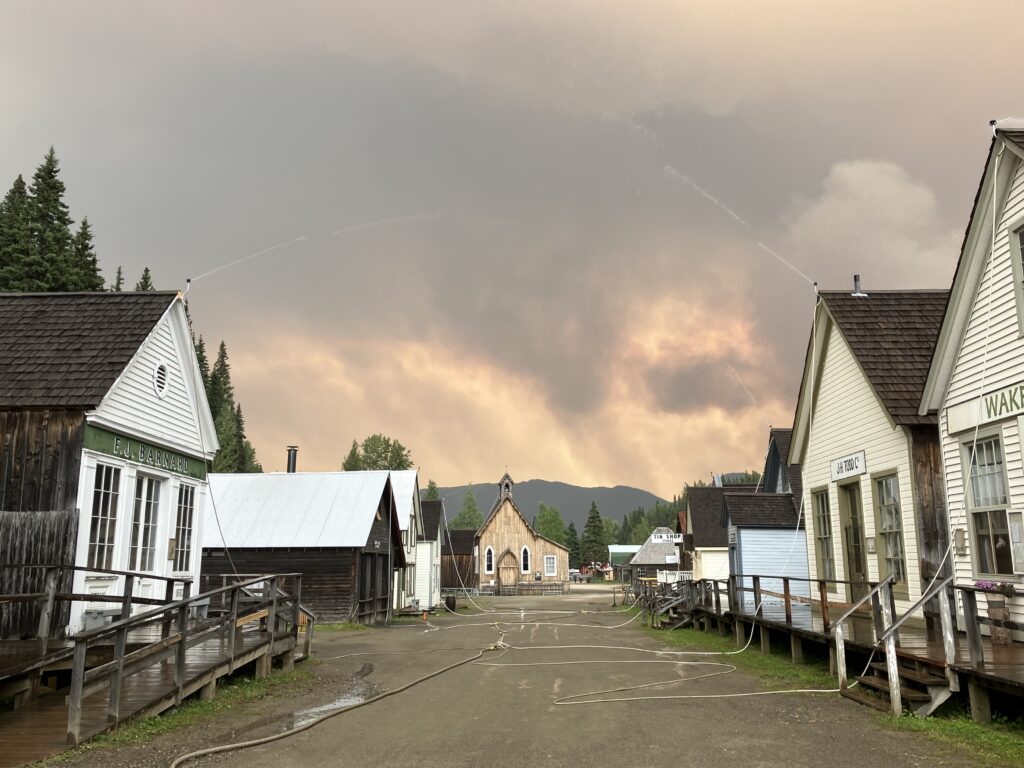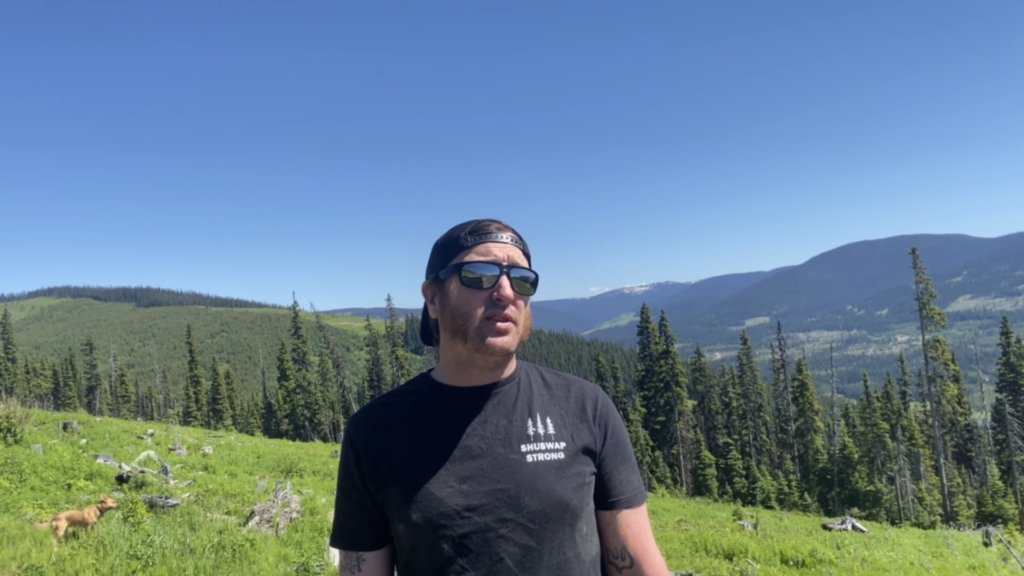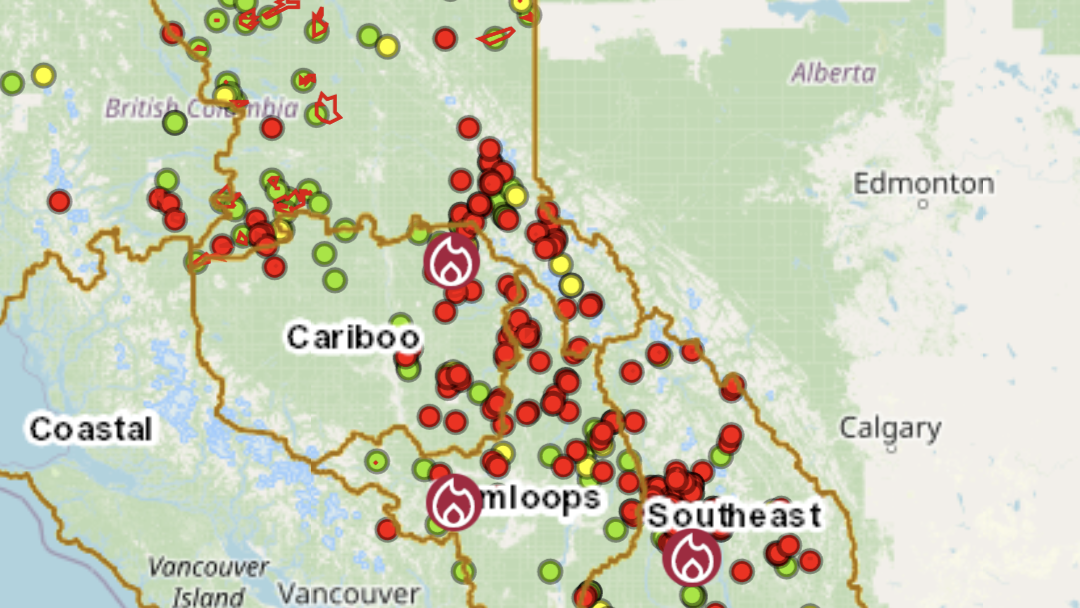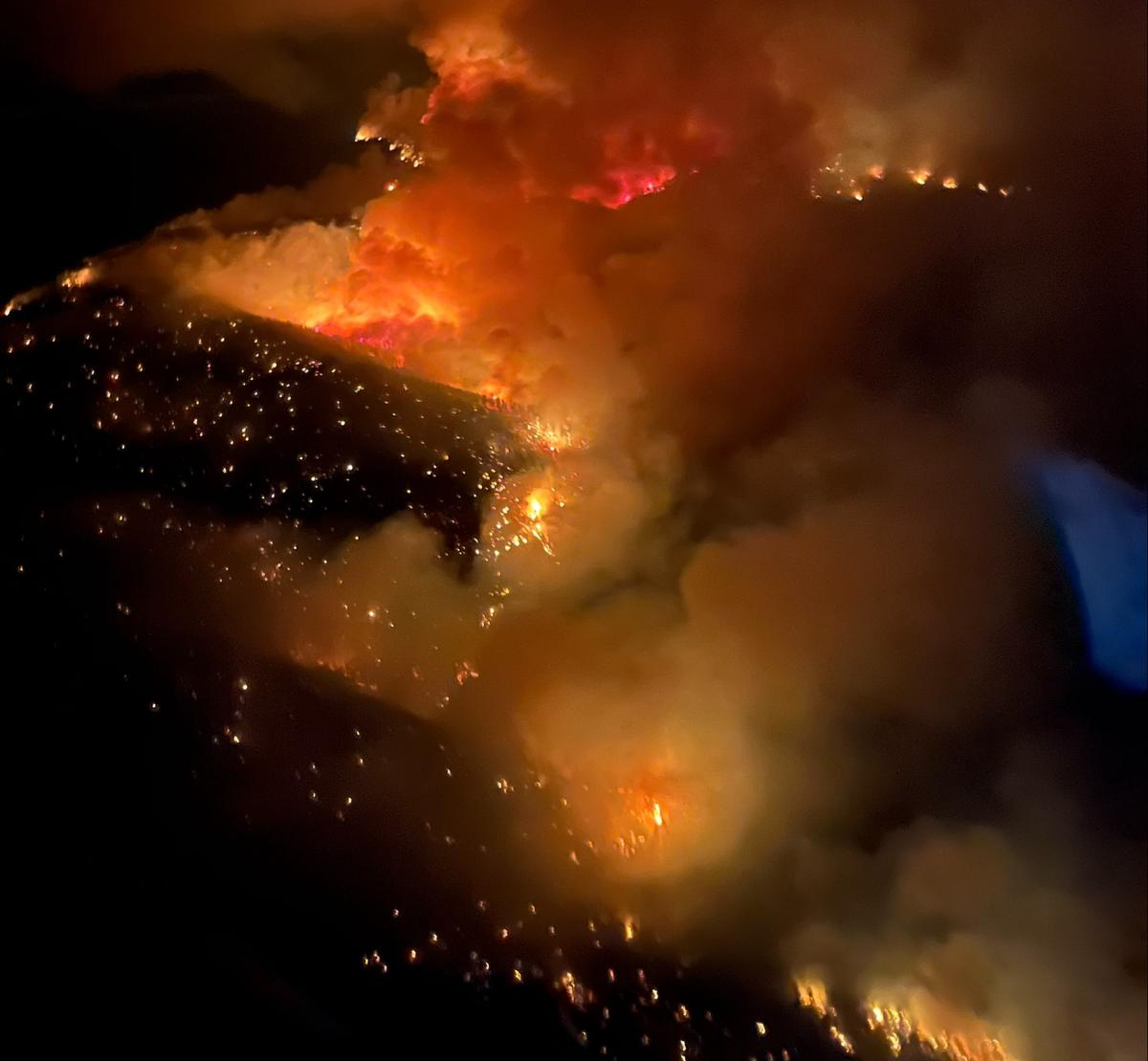The wildfire season that everyone in British Columbia has been holding their breath for has arrived, with 377 active wildfires in the Province. 216 of these fires started in the last seven days, and over half are currently burning out of control according to the BC Wildfire Service.
Joey Only was fighting a wildfire near Quesnel when he heard that the town where he lives, Wells, B.C., was being evacuated, along with the historic town of Barkerville and the Bowron Lakes area, all threatened by the 14,000-hectare Antler Creek wildfire.
“I’m rather stoic about this shit,” the wildland forest firefighter told North Star, he also runs the Cariboo Weather Dude YouTube channel. “Because I’ve been doing this for years now, I’ve been at war over the years. My house has no insurance, so if shit burns up… it will suck if I’m not there, if I’m fighting some fire in Fort Nelson.”
The 20,000-hectare Shetland Creek wildfire burning near Ashcroft and Cache Creek has already destroyed eight homes and 17 structures and caused areas of Ashcroft to be evacuated, with a much larger area put on evacuation alert.

Williams Lake, about an hour south of Quesnel where Only is stationed, had fires come to the very edge of the community on Sunday, threatening a gas station and other buildings and infrastructure.
“I’ve been telling my ex-wife like, get the *** out of Williams Lake, and she’s like, ‘I think it’s gonna be okay,’ but with this wind and this heat, there’s still potential for that thing to get up and move today, no matter how many bombers they put on it tonight,” said Only, referring to the water bomber aircraft used to fight wildfires.
“People have a false sense of security about some of that stuff. Like, ‘If the bombers are hitting, it’s gonna be okay,’ but if the bombers are hitting it, it’s still a bad situation.”

The combination of a dry winter, high temperatures, and 9,000 lightning strikes over a 48-hour period last weekend ignited the province. As it comes on the heels of the worst wildfire season in Canadian history last year and a general upward trend in the number and severity of wildfires, Only views the underlying cause as clear.
“We’re entering new paradigms of weather behaviour in British Columbia and have been for at least five to 10 years. We saw hints of it with certain weather patterns, with pine beetles exploding and with certain things that were like canaries in the coal mine. But now you’re seeing a chance for B.C. to do things weatherwise that [are unprecedented].”
“We’ve hit 40 degrees off and on for three weeks in places,” he adds. “And people reset the bar. But even in Lytton and Lillooet, 40 is hot. They do get it there sometimes, but it’s not usual, not for this long and this much, as we get this far away from June 21st. We’re seeing a level of heat that is rather shocking. We went from everything being green in the Cariboo [region of B.C.] to everything being yellow in three weeks.”

“What’s happening is that the climate regions are changing,” Only explains, “so what you have going on up north right now is that the forest type and the vegetation is no longer in the right place, and the only thing it can do to correct that is burn up and leave a new forest type to take over.”
The implications of this transition are annual disruption, displacement and economic drain for rural and Indigenous communities in B.C. In 2023, about 48,000 people were evacuated, and more than 100,000 others put on evacuation alert. Hundreds of homes were destroyed or damaged and four fire fighters lost their lives.
But the event that looms large over every new alert and evacuation is the day that Lytton burned down on June 30, 2021, displacing almost all of the town’s 250 residents. Three years later, only a handful of residents have returned with only five homes rebuilt and only 15 building permits approved.
Lytton resident Gordon Murray told CBC News, days after the fire, “[Lytton] is really a microcosm of climate change because we are a small, rural, Indigenous, low-income community, and we are at the spear point of climate change. But it’s coming for everybody.”

